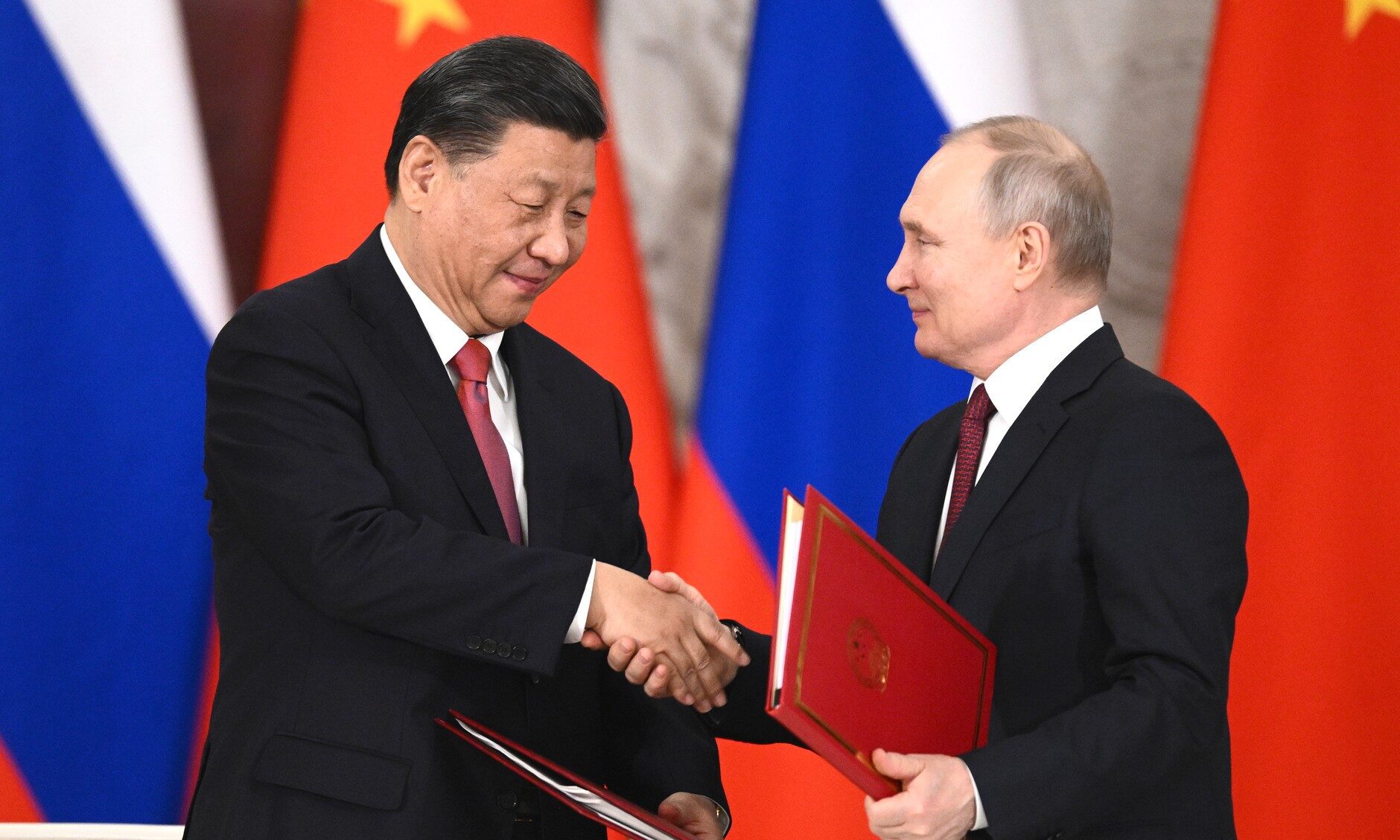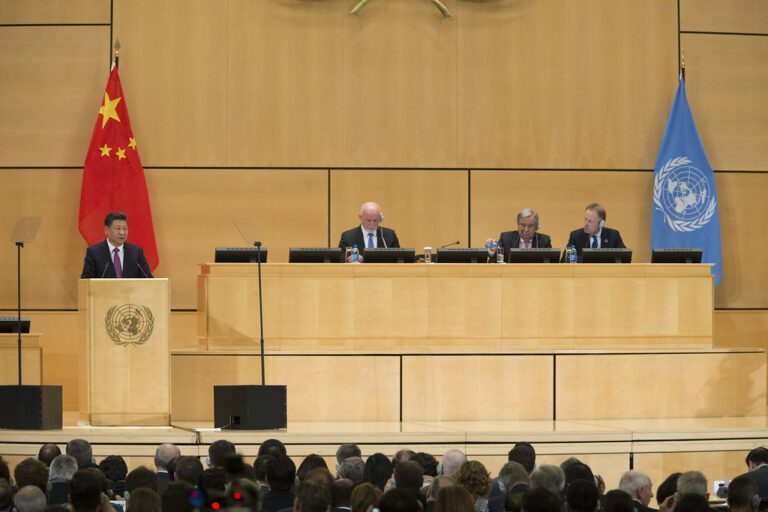
President Volodymyr Zelensky’s decision to disclose the capture of Chinese nationals fighting alongside Russian forces in occupied Donbas, along with his statements regarding Beijing’s military assistance to Moscow, underscores two key dynamics. First, it reflects Kyiv’s growing frustration with China’s position – one that outwardly proclaims neutrality while increasingly bolstering Russia’s capabilities. Second, it signals Ukraine’s intent to draw Washington’s attention to the global ramifications of Sino-Russian partnership.
Chinese Mercenaries Fighting for Russia
Zelensky, who had long refrained from directly criticizing China, delivered an unusually sharp statement: “This is yet another country that is militarily supporting Russia’s invasion of Ukraine. Following Iran and North Korea, this is another case we must discuss with our partners, because we cannot fight against multiple countries that seek to take something from our land. We expect more cooperation from the Americans, and we hope China will respond as well.”
The Ukrainian president also revealed that Ukraine possesses data on 155 Chinese citizens who signed contracts with the Russian military, though the actual number involved could be significantly higher. This revelation was aimed not only at China but also at Ukraine’s Western partners, serving as a stark reminder of the increasingly complex nature of Russia’s war of aggression – one that increasingly draws in third-party nations. The international community’s failure to act decisively in response to Iranian and North Korean support for Russia allowed these countries to become deeply entangled in the conflict, exacerbating the challenges facing Ukraine. Given China’s vast resources and global reach, any expansion of its military support could have deeply destabilizing effects on security of both Ukraine and the EU.
In response, Chinese authorities – known for their sensitivity to public criticism – urged “relevant parties” to maintain a “rational and objective view of China’s role” and to refrain from “manipulation and noise.” Beijing denied any involvement in the participation of its citizens in Russia’s war and pledged to assess the actions of the captured individuals in accordance with the Chinese law, following a full investigation. China’s Ministry of Foreign Affairs further noted that multiple warnings had been issued to its citizens, advising them to “stay away from conflict zones, avoid any involvement in armed conflicts, and especially refrain from participating in military operations of any party.”
The two Chinese nationals captured by Ukrainian forces confirmed that they were not affiliated with the Chinese military or state institutions but were recruited by intermediaries through social media advertisements.While this may shift some responsibility away from the Chinese government – portraying these individuals as mercenaries acting independently – it could also serve as a convenient alibi in response to Zelensky’s accusations. Nevertheless, the recruitment of Chinese mercenaries via platforms like Kuaishou and TikTok, often through influencers and online ads, suggests a troubling level of tolerance of the Russian propaganda by Chinese authorities, as well as a failure to curb the activities of Russian operatives. According to the captured fighters, there is a prevailing narrative within China portraying a friendly stance toward Russia, along with widespread messaging about Russia’s “victories.”
Beijing’s Double Game in the Russian War
Since the beginning of the war, China has carefully balanced its support for Russia with formal neutrality and peace proposals. However, over more than three years of fighting, it has become clear that Beijing is a crucial pillar in Moscow’s war of attrition. This support is not limited to diplomacy, information, and economic backing; China is also a major supplier of dual-use goods to Russia.
During a recent speech at the Senate Armed Services Committee, Admiral Samuel Paparo from the US Indo-Pacific Command stated that China had provided Russia with 70 percent of its machine tools and 90 percent of its obsolete chips to help restore Russia’s military machine. Kaja Kallas, the High Representative of the European Union for Foreign Affairs and Security Policy, called China “the main sponsor of Russian aggression,” adding that: “It is clear that China is the key enabler of Russia’s war. Without Chinese support, Russia wouldn’t be able to wage the war to the extent that they are. We know that 80 percent of dual-use goods are routed to Russia through China.”
This cooperation is also evident in practical terms: a recent analysis of Russian Shahed and Geran-2 drones launched at Ukrainian territory showed an increase in the number of Chinese components replacing American ones (apparently due to efforts to circumvent sanctions), compared to 2023. According to the Ukrainian military intelligence, the new CRP antennas for the Geran-2 drones contained only two American-made chips, with the majority of parts, including transceivers, generators, and microchips, manufactured in China. The main chip of the CRP antenna was made by the Chinese company Beijing Microelectronics Technology Institute (BMTI).
China has repeatedly rejected criticism regarding its supply of dual-use goods to Russia. However, even amid complaints from Ukraine, this has not led to an open escalation in relations between Kyiv and Beijing. On one hand, Ukraine itself remains dependent on imports of Chinese electronics. On the other, China is far from being the only country through which Russia circumvents sanctions and export restrictions. For this reason, Ukrainian authorities have tried to address the issue comprehensively, involving Western partners whose components also reach Russia through third countries.
A more important issue for Kyiv has been preventing direct Chinese military support for Russia. By encouraging Beijing to play a more active role in the peace process and enticing it with the prospects of participating in post-war reconstruction, Zelensky’s team left room for maneuver between China’s close relations with Russia and its desire to demonstrate impartiality in the war. Ukraine and its Western partners have thus effectively agreed to Beijing’s double game to avoid pushing it into even deeper cooperation with Moscow.
Kyiv Confronts Beijing
However, in recent days, Kyiv has abandoned its cautious approach. Following the disclosure of information about Chinese mercenaries, Volodymyr Zelensky stated that Ukraine had received intelligence indicating that China is supplying Russia with weapons – gunpowder and artillery – and assisting in weapons production within Russia itself. He emphasized that this is not about smuggling or the purchase of Chinese arms on black markets through intermediaries, but rather direct cooperation between the two countries aimed at strengthening Russia’s defense capabilities. Shortly thereafter, President Zelensky enacted sanctions against 56 companies, three of which are Chinese. The Chinese Ministry of Foreign Affairs called the president’s statement baseless and firmly denied the claims: “China has never provided lethal weapons to any party involved in the conflict and strictly controls the export of dual-use goods.”
Bringing accusations against China into the public domain is unlikely to change Beijing’s behavior or strategic calculations. From the very beginning, China has viewed the war through the lens of its own confrontation with the United States, with strategic relations with Russia serving as a crucial tool for advancing its own geopolitical goals. China has become a beneficiary of this war, actively supporting Russia’s military capacities.
The Ukrainian government’s publication of information regarding Chinese mercenaries and Beijing’s military assistance was clearly aimed at the Trump administration, in order to highlight not only Moscow’s deep dependence on Chinese support but also Beijing’s broader geopolitical interests, which extend beyond the Indo-Pacific region. However, the restrained response from the White House suggests that this information did not significantly affect its foreign policy outlook or priorities. Unfortunately, the American president’s desire to quickly strike a deal with Russia is pushing the administration toward hasty decisions at Ukraine’s expense – ones that involve major concessions to Moscow and ignore the broader consequences for global security.
Written by
Nataliya Butyrska
Nataliya Butyrska is an independent expert on East Asia. She is an author of more than 100 analytical articles and reports on the issues of international relations with a special focus on the Indo-Pacific region and Ukraine's relations with Asian countries.


